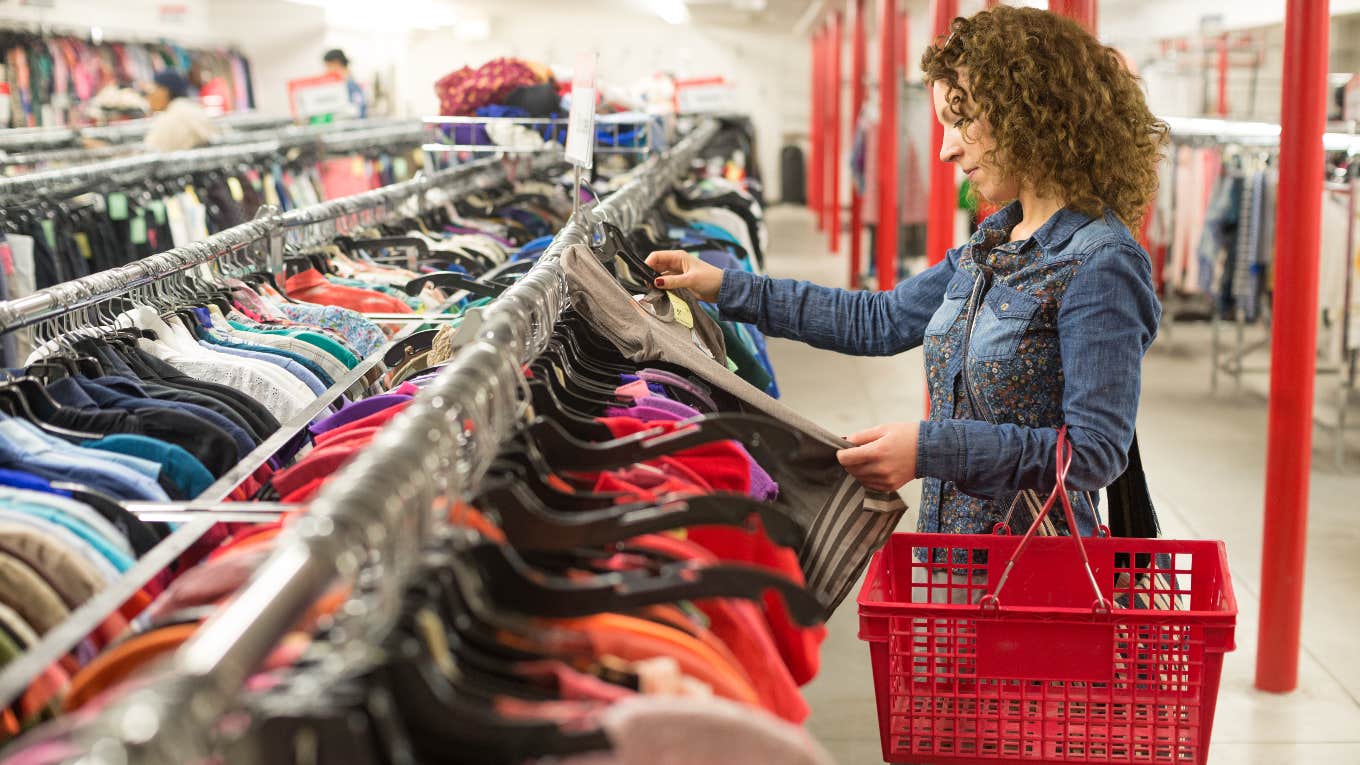A content creator named Marc Frank reacted to a video of a young girl finding a popular designer brand while shopping in Goodwill — except it was a knock-off and the popular thrift store franchise should not even be selling it in the first place, and definitely not at that price point.
Frank criticized Goodwill for selling fake Prada loafers for $300.
He stitched a TikTok made by content creator Maiya Mindoro who was excitedly showing off a pair of patent leather Prada loafers she’d scored while shopping in Goodwill. In the comments section of her video, she responded to a viewer who asked how much she’d gotten the designer shoes for — $300.
Seemingly unaware that the shoes were fake, Mindoro noted that it was an expensive purchase for a thrift store but she was excited to find such a popular designer brand in relatively good condition.
Frank, however, was far less impressed by the young woman’s Goodwill purchase.
“If you go to the thrift store and find designer then come on here and share your find and embrace its fakeness, I’m not going to say [anything]. You do you,” Frank insisted. He pointed out that this young woman wasn’t embracing anything, and it was frankly “embarrassing” that she didn’t realize she was being ripped off.
With a quick Google search, Frank showed back-to-back photos of actual Prada loafers and the ones she’d found at the thrift store. Noting the obvious differences in both pairs of shoes, Frank explained that this woman had been bamboozled into spending $300 for a fake pair of shoes.
“You don’t have to be an expert in luxury or authentication to use it. This is so disrespectful to yourself and to your finances,” Frank continued. His main issue didn’t lie with the consumer being careless with their spending but with Goodwill thinking it’s not only OK to market fake shoes as designer but attempting to sell them to unaware customers for hundreds of dollars.
 Photo: Daisy Daisy / Shutterstock
Photo: Daisy Daisy / Shutterstock
Many shoppers have spoken out against the rising prices in thrift stores, including Goodwill.
In recent years, mostly due to increased popularity among Gen Z, the U.S. thrifting market has steadily increased. According to ThredUp, a secondhand online marketplace, the market for secondhand goods in the US is expected to grow 16 times faster than the full-price clothing market and be worth $82 billion by 2026.
While many people blame the influx of resellers, who shop at thrift stores like Goodwill and then use online marketplaces to sell those used clothes at an increased price, the issue isn’t them, but rather the thrift stores themselves.
“We should look at the corporate facilities, even as they’re classed as nonprofit organizations. That is a dubious delineation when it comes to major secondhand clothing corporations,” Jennifer Le Zotte, an assistant professor at the University of North Carolina Wilmington told Vox.
Goodwill has long faced accusations that their company is actually for profit, despite marketing themselves as a not-for-profit organization. While nothing has been proven, the myth still exists, which is enough for people to criticize the successful company.
While the exact nature of Goodwill’s operations remains up for debate, Frank’s critique brings to light the broader issues surrounding the authenticity and ethics of secondhand retail chains. It’s become increasingly important that consumers do their due diligence to make sure they aren’t being ripped off, because the reality is, that nothing at a thrift store should be anywhere near $300, especially a knock-off.
Nia Tipton is a Chicago-based entertainment, news, and lifestyle writer whose work delves into modern-day issues and experiences.
